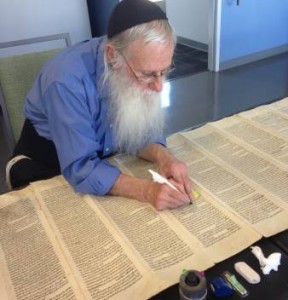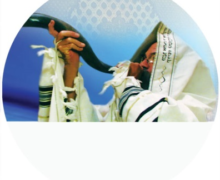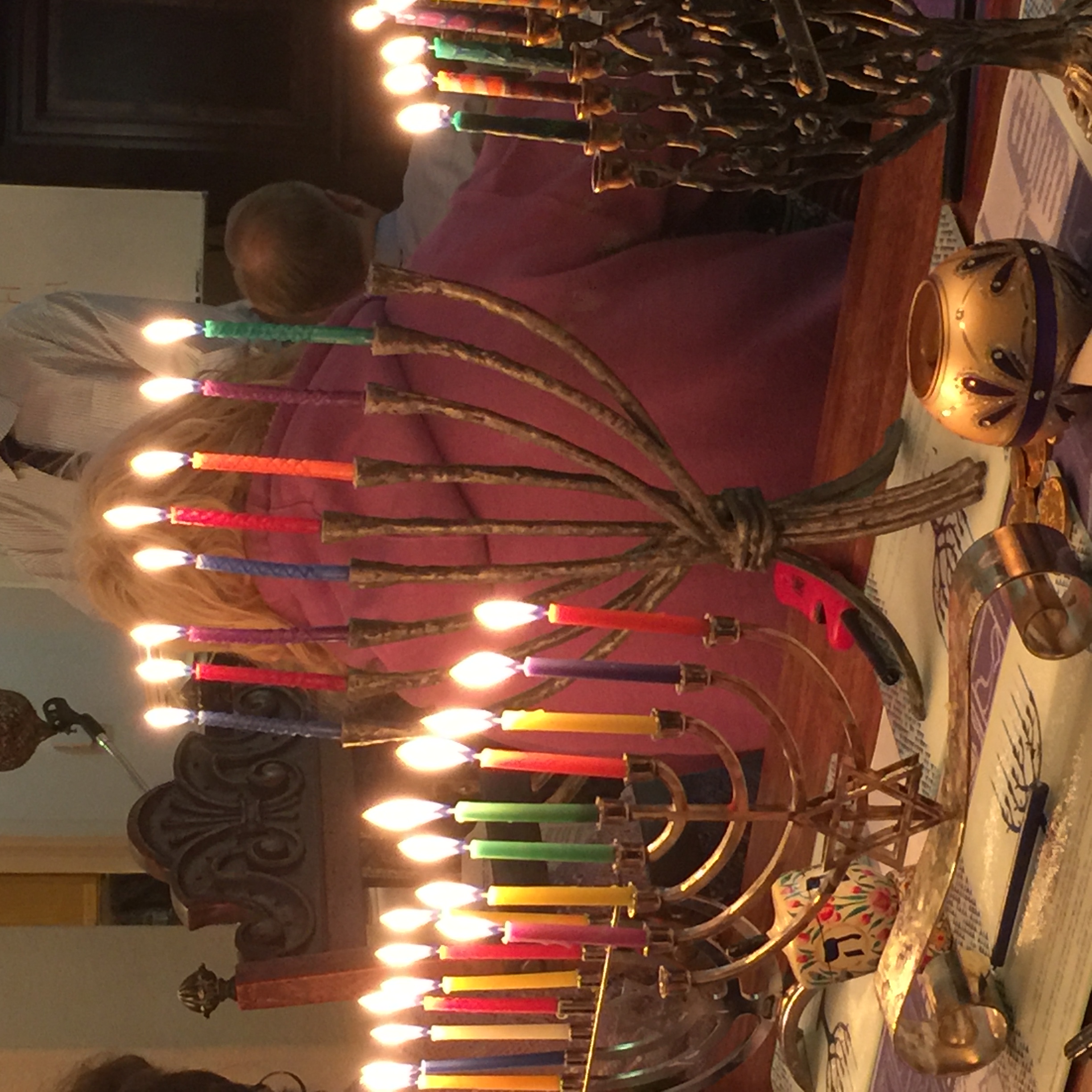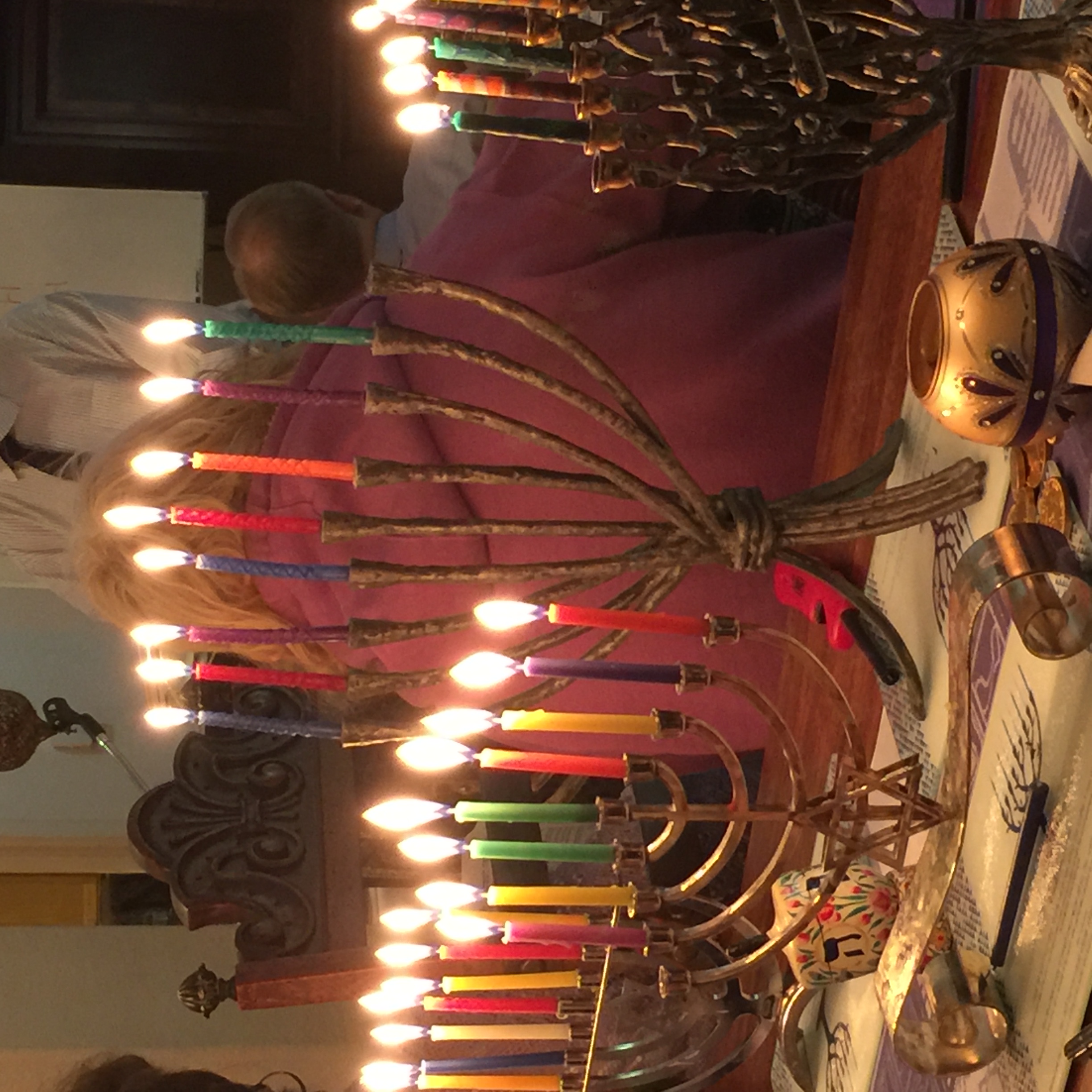The Torah lives!
One of my favorite things is watching how the L-rd constantly orchestrates events and happenings surrounding my life. For example, the last couple of weeks I’ve been feeling that I wanted to write a Call To Prayer on the Torah (the first 5 books of the Tanach or Old Testament). And guess what He did? At the last moment, we learned about 2 presentations here in Tucson on the Torah – pretty neat confirmation!
The first was by University of Nebraska Professor Sidnie White Crawford, whose credentials include being a world-renowned expert on the Dead Sea Scrolls, Chair of the Board of Trustees of the W.F. Albright Institute of Archaeological Research in Jerusalem, trustee of the American Schools of Oriental Research, and a member of the Council of the Society of Biblical Literature. She explained that scrolls were found in several of the Qumran caves. Because there was a large number of scrolls and a copy or copies of virtually every scroll in Cave #4, it is conjectured that that cave was a library or a depository. Some of the other caves appeared to have been private dwellings which contained the individual’s personal scrolls. Out of all the scrolls or fragments found approximately 25% are Biblical text; the rest were other writings. It is interesting to note that every book in the Tanach (Old Testament), with the exception of Esther, was found in the caves of Qumran. Another point that she made was that Deuteronomy, Isaiah, and Psalms were the most frequently quoted books in other writings (and in the Apostolic Scriptures or New Testament).
Research, and a member of the Council of the Society of Biblical Literature. She explained that scrolls were found in several of the Qumran caves. Because there was a large number of scrolls and a copy or copies of virtually every scroll in Cave #4, it is conjectured that that cave was a library or a depository. Some of the other caves appeared to have been private dwellings which contained the individual’s personal scrolls. Out of all the scrolls or fragments found approximately 25% are Biblical text; the rest were other writings. It is interesting to note that every book in the Tanach (Old Testament), with the exception of Esther, was found in the caves of Qumran. Another point that she made was that Deuteronomy, Isaiah, and Psalms were the most frequently quoted books in other writings (and in the Apostolic Scriptures or New Testament).
 The second presentation was by Master Sofer (scribe) Rabbi Gedaliah Druin*. He asked those of us in the audience to consider the following: ‘What book do you cradle? Do you cradle a book of Shakespeare?’ ‘What book do you kiss?’ ‘What book do you ‘dress’?’ ‘Do you give it an “apartment” (the Ark)? ‘Do you build a “house” (a synagogue) around it?’ Only the Torah! Because the Torah is not a book; it is an instrument, a living instrument. He also mentioned that in some ways, a Torah is not so different from a cell phone. We must learn how to use both of them, to care for them. You are able to search for information on each. However, only the Word speaks to you.
The second presentation was by Master Sofer (scribe) Rabbi Gedaliah Druin*. He asked those of us in the audience to consider the following: ‘What book do you cradle? Do you cradle a book of Shakespeare?’ ‘What book do you kiss?’ ‘What book do you ‘dress’?’ ‘Do you give it an “apartment” (the Ark)? ‘Do you build a “house” (a synagogue) around it?’ Only the Torah! Because the Torah is not a book; it is an instrument, a living instrument. He also mentioned that in some ways, a Torah is not so different from a cell phone. We must learn how to use both of them, to care for them. You are able to search for information on each. However, only the Word speaks to you.
There are three parts of the Sefer Torah (Torah Scroll): ink, quill, and parchment. The ink (or brew) is called Dio (liquid darkness) and takes weeks to make. This very special ink is designed to last hundreds even thousands of years. This ink does not penetrate the parchment; it sits on top – the ink marries or bonds to the parchment.
The 2nd part is the quill (the writing utensil) which is made from a kosher bird: often a duck or a turkey. There are 3 cuts in the quill which regulate the flow of ink.
The final part of the scroll is the parchment, which generally comes from a cow, goat, or sheep. Preparing the skin for Torah-use is another highly specialized craft: it must be smooth yet supple with no blemishes. It is also prepared to last hundreds even thousands of years. The skin is called “or” (עוֹר), which has the same pronunciation as “light” (אוֹר).
The symbolism of dark/black and light/white is common throughout the Word (eg, “The light shines in the darkness,” Jn 1:15; cloud of darkness by day and pillar of fire by night, Ex 13:21-22; etc). The juxtaposition of light and dark is also seen in modern Israel. (The Shrine of the Book at the Israel Museum, where the Dead Sea Scrolls are stored, has a black wall facing the white museum.) Rabbi Druin gave the analogy that the “liquid darkness” or the ink marries the “light” of the parchment.
As a believer, I found the rabbi’s presentation fascinating. G-d’s Word is living – it is much more than a mere book – it is G-d’s instrument of love; His instruction for us! We cherish the Bible above every other book; we handle it with care; we revere it. And the light of His Word overpowers the darkness around us. Let’s each day make more of a concerted effort to raise the Torah to a higher place in our lives.
mere book – it is G-d’s instrument of love; His instruction for us! We cherish the Bible above every other book; we handle it with care; we revere it. And the light of His Word overpowers the darkness around us. Let’s each day make more of a concerted effort to raise the Torah to a higher place in our lives.
Prayer:
“Mighty G-d, thank You for Your constantly intervening in our lives! Even when we don’t understand, You are orchestrating our lives. We love You, our precious Heavenly Father. Thank You for sending Your Son, our Messiah! We pray for Your intervention, for Your bringing Your peace to Jerusalem. Help our country to turn to You … and away from our own ways. In the Name of our Messiah, we pray.”
*Other interesting points by the Rabbi Druin:
- Rabbi Druin recounted that when the official language of the United States was being chosen, there was much debate. Many did not want English because of the ill-feelings toward the British. German and Hebrew were other languages under consideration. When the vote was cast, Hebrew lost by only ONE vote!
- On the back of a US $1.00 bill are 13 stars, representing the 13 colonies. But have you noticed that the placement of the 13 stars is in the shape of a 6-pointed Star of David?



